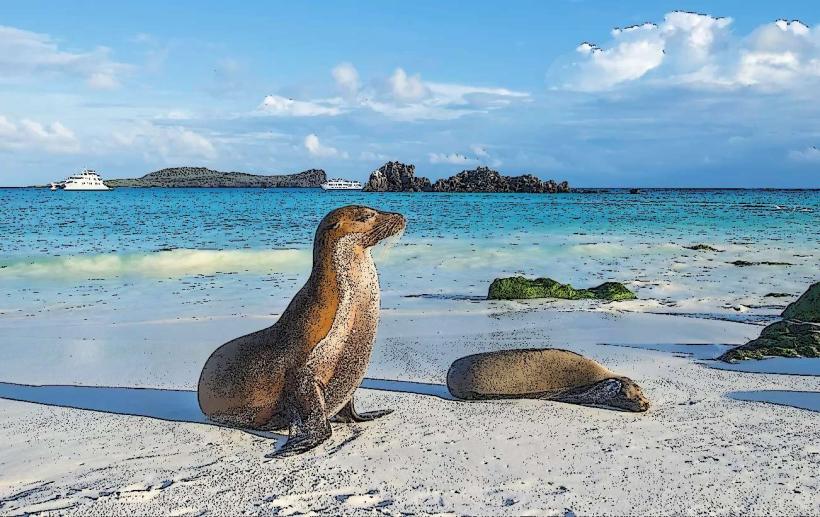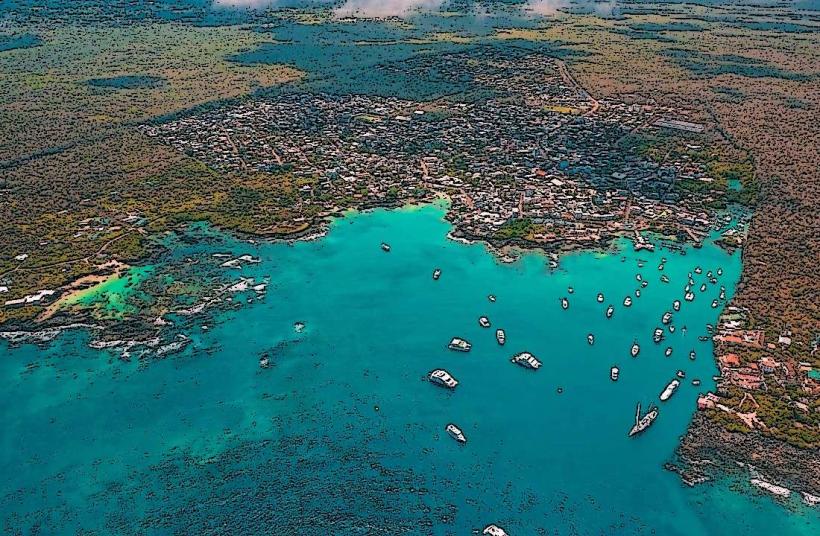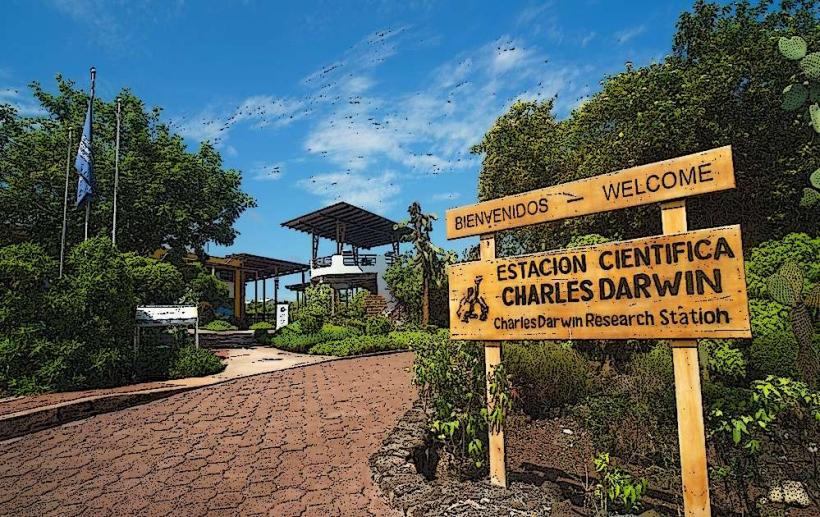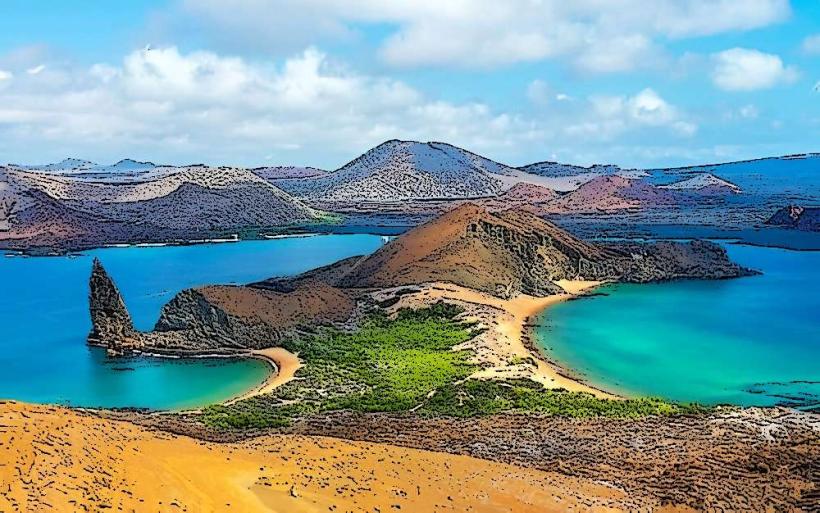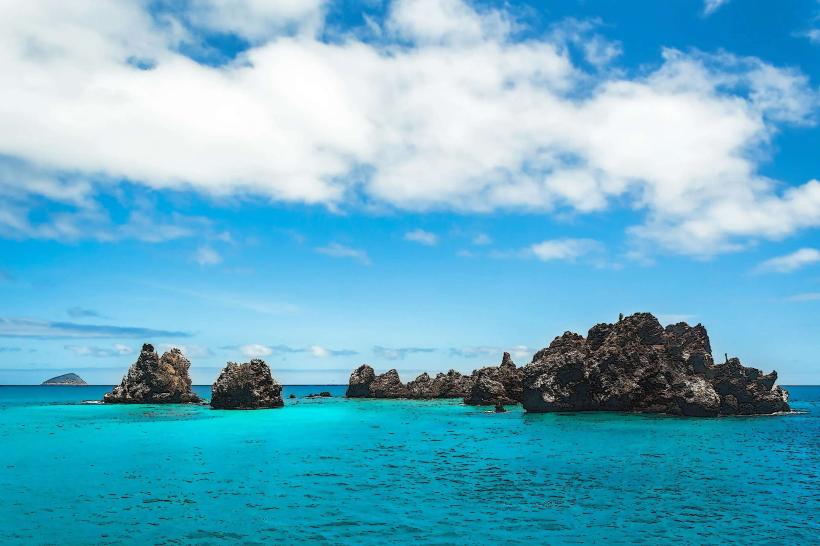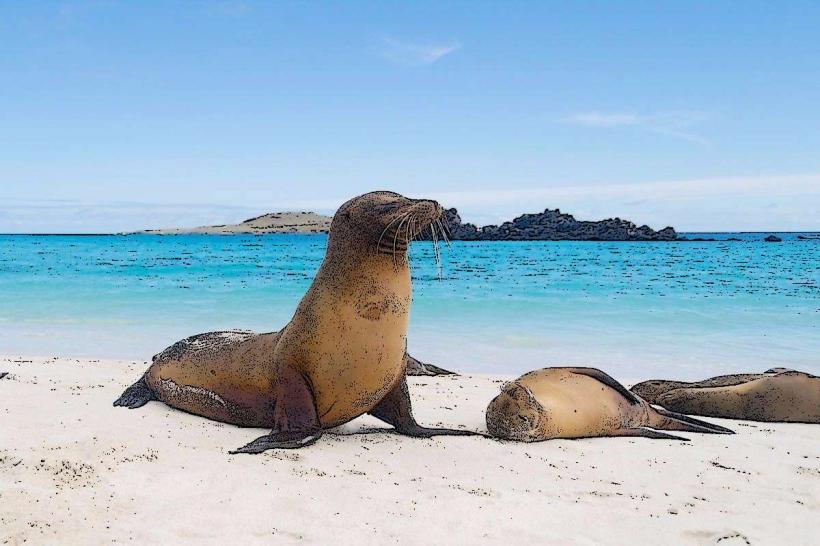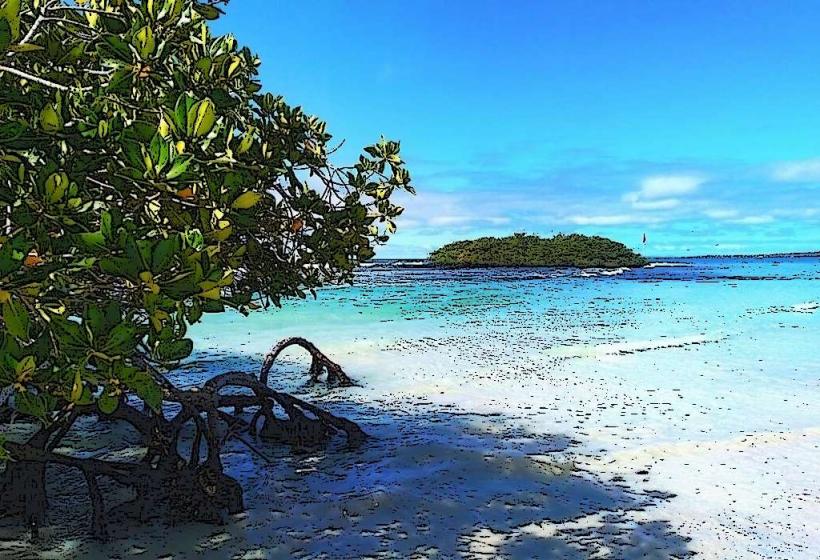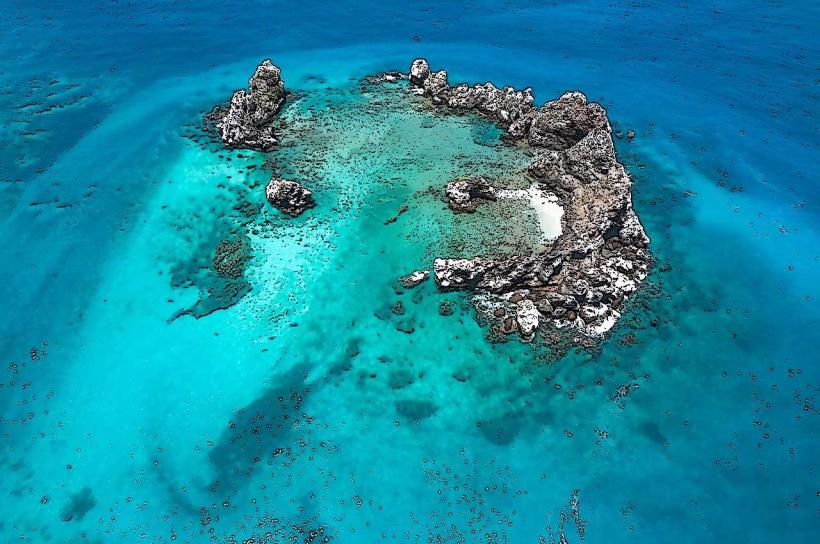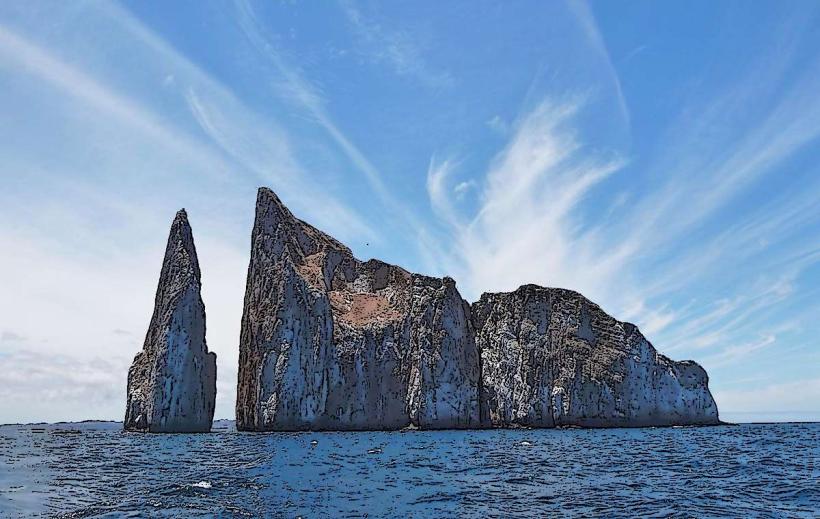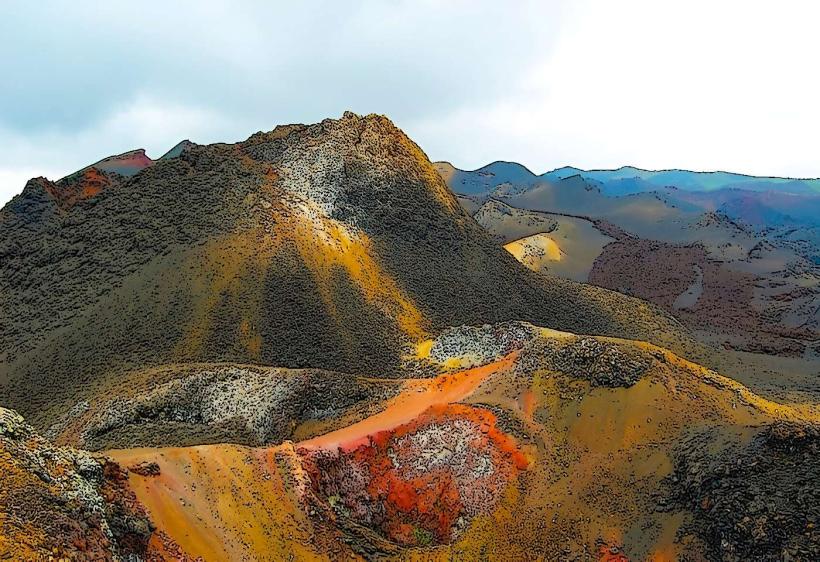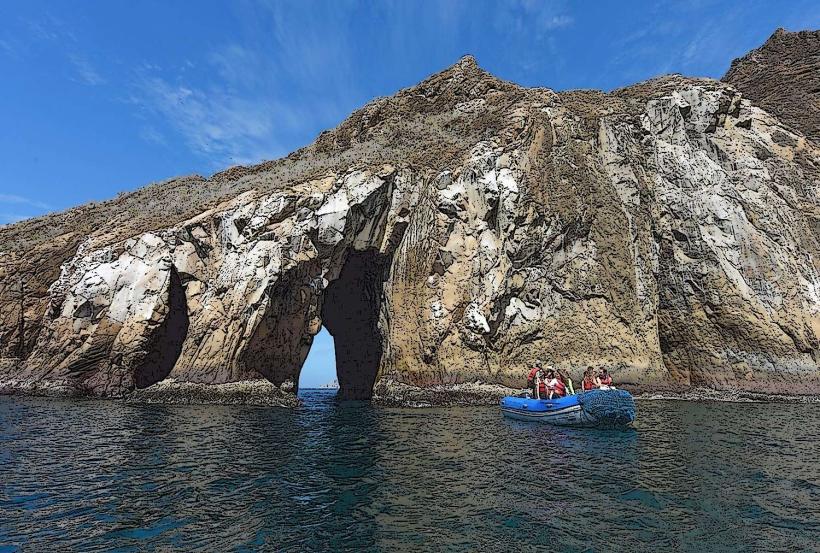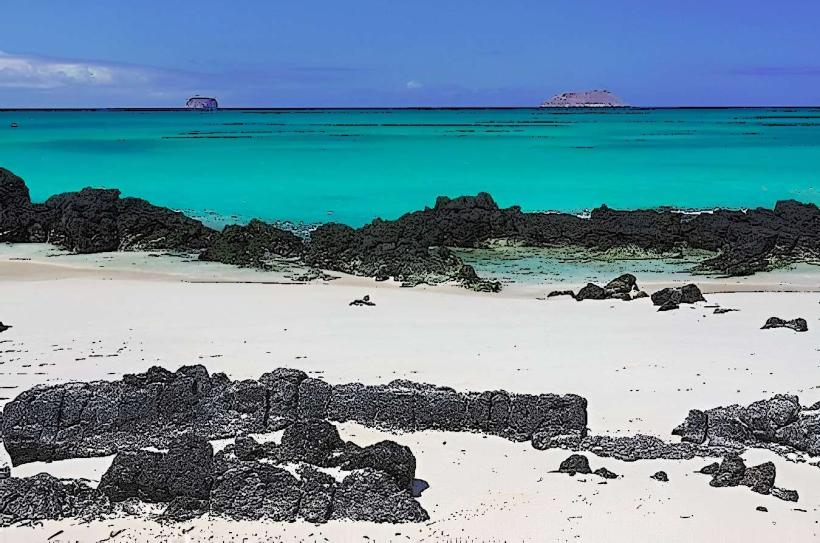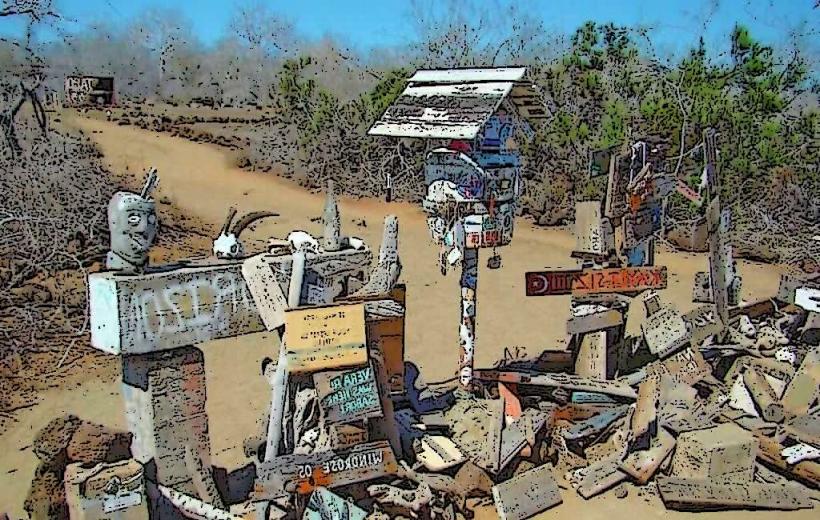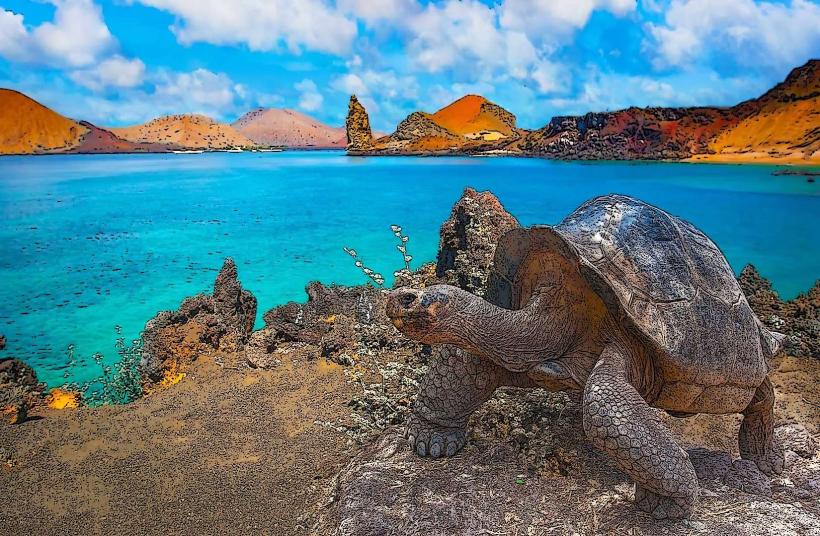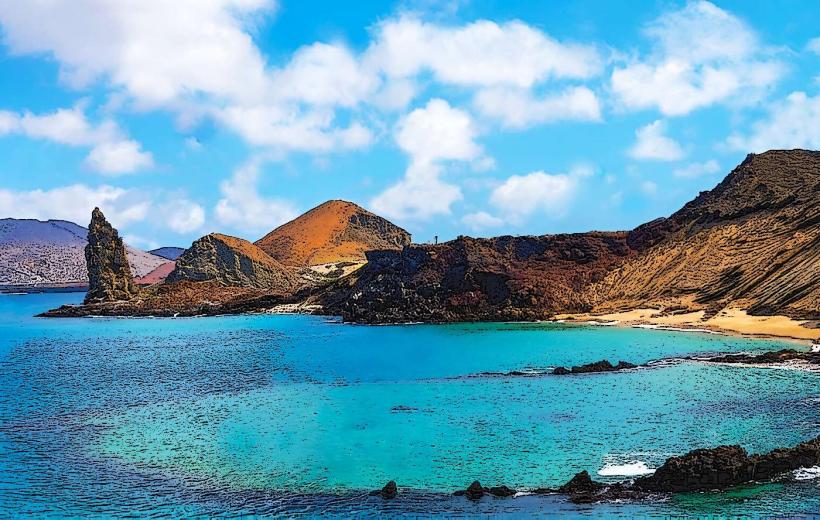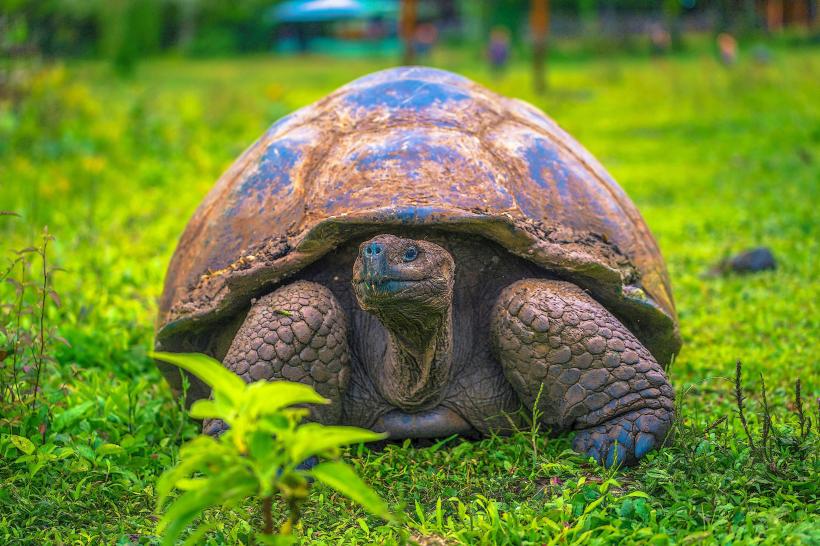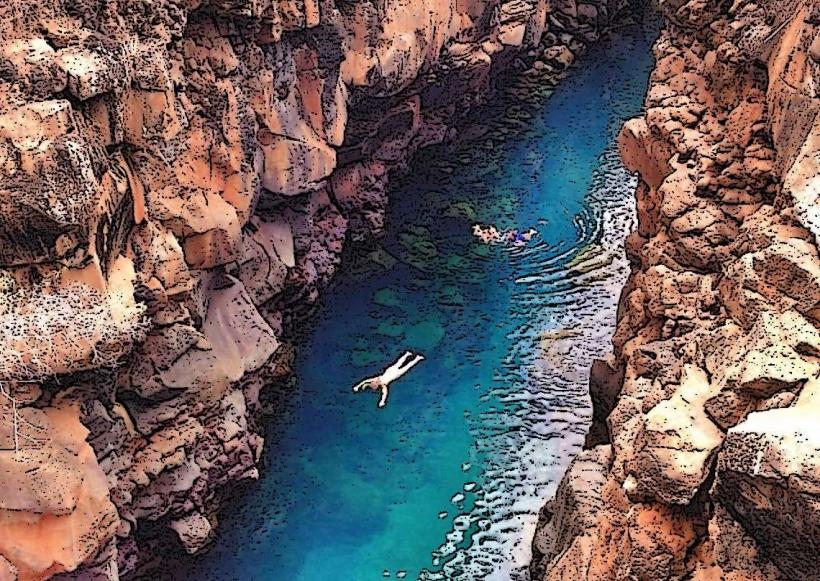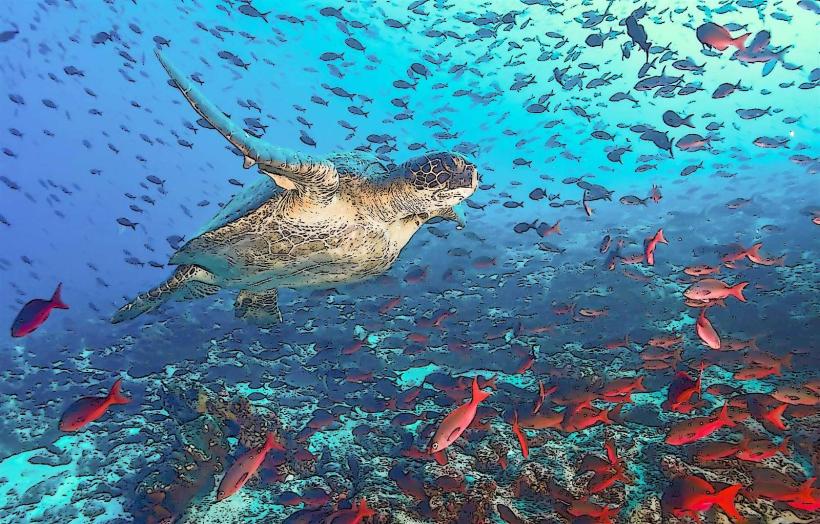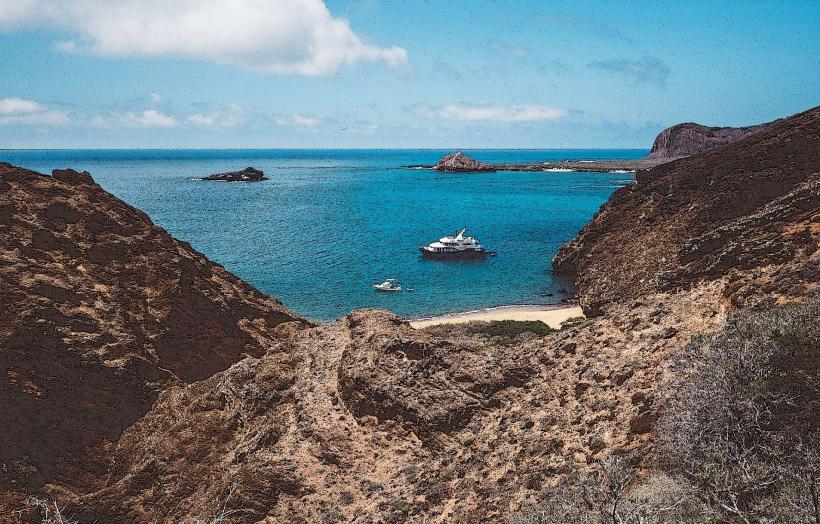Information
Landmark: Isla IsabelaCity: Galapagos Islands
Country: Ecuador
Continent: South America
Isla Isabela, Galapagos Islands, Ecuador, South America
Isla Isabela: The Largest and Most Diverse Island in the Galápagos
Isla Isabela is the largest island in the Galápagos archipelago, covering approximately 4,640 square kilometers (1,790 square miles)-more than half the total land area of the islands. Despite its size, it is less populated and less developed than Santa Cruz, making it an ideal destination for those seeking a more remote, wild, and pristine experience. Its volcanic landscapes, abundant wildlife, and diverse ecosystems make it one of the most fascinating islands to explore.
Geographical and Geological Features
Isla Isabela was formed by the fusion of six shield volcanoes-Wolf, Darwin, Alcedo, Sierra Negra, Cerro Azul, and Ecuador-making it one of the most geologically active areas in the Galápagos.
- Sierra Negra Volcano has one of the largest volcanic craters in the world, measuring around 10 kilometers (6.2 miles) in diameter.
- The island features lava fields, black volcanic rocks, and lush highland vegetation, creating a striking contrast in landscapes.
- Due to its varied climate zones, Isabela supports a wide range of ecosystems, from arid coastal areas to humid highlands.
Wildlife and Endemic Species
Isla Isabela is home to some of the most unique wildlife in the Galápagos, with many species found only in this region. Its diverse habitats provide a haven for both land and marine animals.
1. Giant Galápagos Tortoises
- Isabela has five distinct tortoise populations, each adapted to different volcanic regions.
- The island’s highlands provide ideal conditions for these tortoises to thrive.
2. Flightless Cormorants
- Found only on Isabela and Fernandina, these birds have lost their ability to fly due to the lack of natural predators.
- They are excellent swimmers and divers, using their small wings for balance underwater.
3. Galápagos Penguins
- Isabela is home to the largest population of Galápagos penguins, the only penguin species found north of the equator.
- These small penguins are commonly seen diving in the waters near rocky shores and mangroves.
4. Marine Iguanas
- Isabela’s marine iguanas are some of the largest in the Galápagos, adapted to feeding on algae in the ocean.
- During the breeding season, males develop bright red and green coloration.
5. Blue-Footed and Nazca Boobies
- These seabirds are often seen nesting along the island’s cliffs.
- Blue-footed boobies are famous for their mating dance, while Nazca boobies engage in siblicide behavior, where the stronger chick outcompetes the weaker one.
6. Galápagos Hawks
- One of the top predators on the island, often seen soaring above the lava fields.
7. Pink Land Iguanas
- Found only on Wolf Volcano, these rare pink-colored iguanas are one of the most recently discovered species in the Galápagos.
Top Attractions and Things to Do
1. Sierra Negra Volcano
- Home to one of the largest volcanic craters in the world.
- Offers stunning panoramic views of the lava fields and surrounding landscape.
- The hike to the crater rim is one of the most popular activities on the island.
2. Los Túneles (The Tunnels)
- A network of lava tunnels and natural bridges created by ancient volcanic activity.
- One of the best snorkeling spots in the Galápagos, where visitors can swim with sea turtles, white-tipped reef sharks, rays, and seahorses.
3. Puerto Villamil
- The main town on Isla Isabela, offering a laid-back and relaxed atmosphere.
- Has beautiful beaches, local restaurants, and a small-town charm.
4. Las Tintoreras
- A small chain of islets near Puerto Villamil, home to marine iguanas, Galápagos penguins, and sea lions.
- The calm waters are perfect for kayaking and snorkeling.
5. Wall of Tears (El Muro de las Lágrimas)
- A historical site built by prisoners in the mid-20th century, when Isla Isabela was used as a penal colony.
- The long, difficult construction process led to the name “Wall of Tears” due to the suffering endured by the prisoners.
6. Arnaldo Tupiza Breeding Center
- A conservation center dedicated to protecting and breeding Galápagos tortoises.
- Visitors can see tortoises of all ages and learn about conservation efforts.
7. Concha de Perla
- A natural lagoon with crystal-clear water, ideal for snorkeling.
- Frequently visited by sea lions, rays, and tropical fish.
8. Vicente Roca Point
- One of the best diving and snorkeling sites, known for hammerhead sharks, manta rays, and sunfish (Mola mola).
- The waters are rich in marine life due to cold ocean currents.
Marine Life and Snorkeling Opportunities
The waters around Isla Isabela are teeming with marine biodiversity, making it a paradise for snorkeling and diving enthusiasts. Some of the top spots include:
- Los Túneles – Known for lava formations, tunnels, and incredible underwater life.
- Vicente Roca Point – Offers a chance to see whale sharks, sunfish, and other large marine creatures.
- Concha de Perla – A calm and shallow lagoon, ideal for beginners.
Conservation and Environmental Challenges
Isabela’s remote and undeveloped nature has helped preserve its ecosystems, but environmental threats still exist. Conservation efforts focus on:
- Protecting endangered species, such as the Galápagos penguin and pink land iguana.
- Controlling invasive species, like feral goats and rats, which threaten native wildlife.
- Sustainable tourism, ensuring that visitors have minimal impact on the island’s delicate environment.
Why Visit Isla Isabela?
Isla Isabela offers one of the most diverse and untouched experiences in the Galápagos. Unlike the busier islands, Isabela remains wild, remote, and rich in natural beauty.
- Home to unique wildlife, including pink land iguanas, Galápagos penguins, and flightless cormorants.
- Incredible volcanic landscapes, featuring one of the largest craters in the world.
- Some of the best snorkeling and diving spots, filled with sharks, sea turtles, and rays.
- A peaceful and unspoiled atmosphere, with fewer crowds than Santa Cruz.
With its dramatic landscapes, rich biodiversity, and incredible snorkeling opportunities, Isla Isabela is a dream destination for nature lovers and adventurers alike.

